SpaceX completes last big test of crew capsule before launching astronauts in next few months
Elon Musk’s SpaceX has continued its rocket testing with a test which involved blowing up the Falcon 9 in flight.
SpaceX completed the last big test of its crew capsule before launching astronauts in the next few months, mimicking an emergency escape shortly after lift-off.
No one was aboard for the wild ride in the skies above Cape Canaveral, just two mannequins.
A Falcon 9 rocket blasted off as normal, but just over a minute into its supersonic flight, the Dragon crew capsule catapulted off the top 20km kilometres above the Atlantic.
The space company of entrepreneur Elon Musk, SpaceX, under contract with NASA, launched its Crew Dragon capsule from the Kennedy Space Centre.
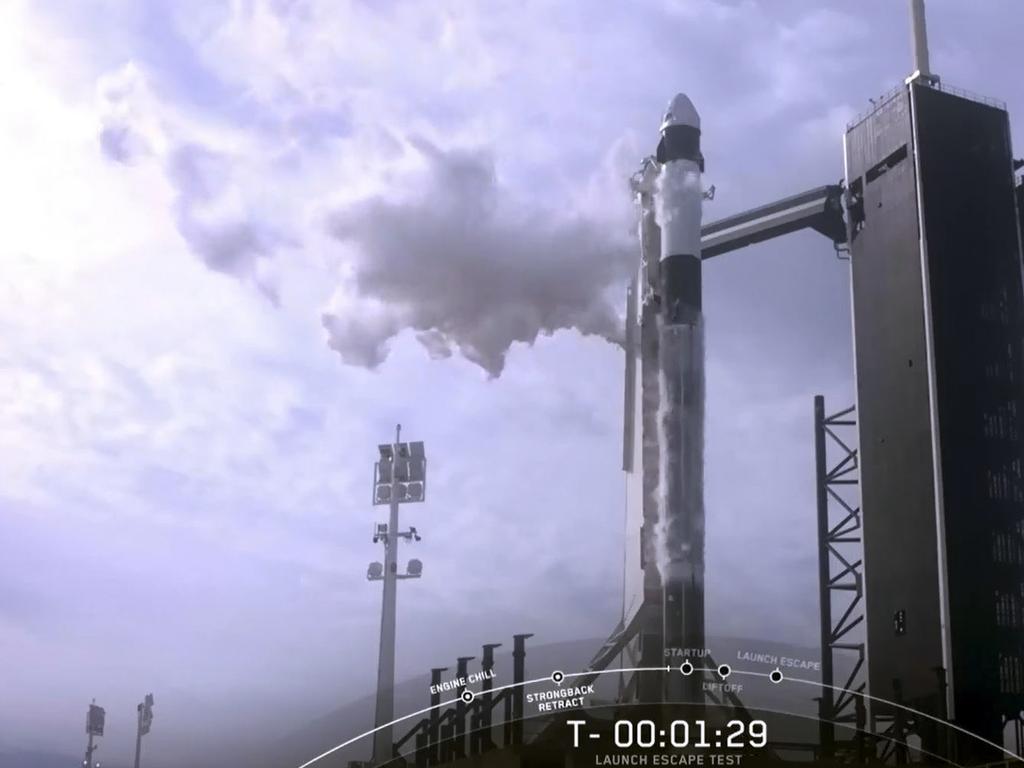
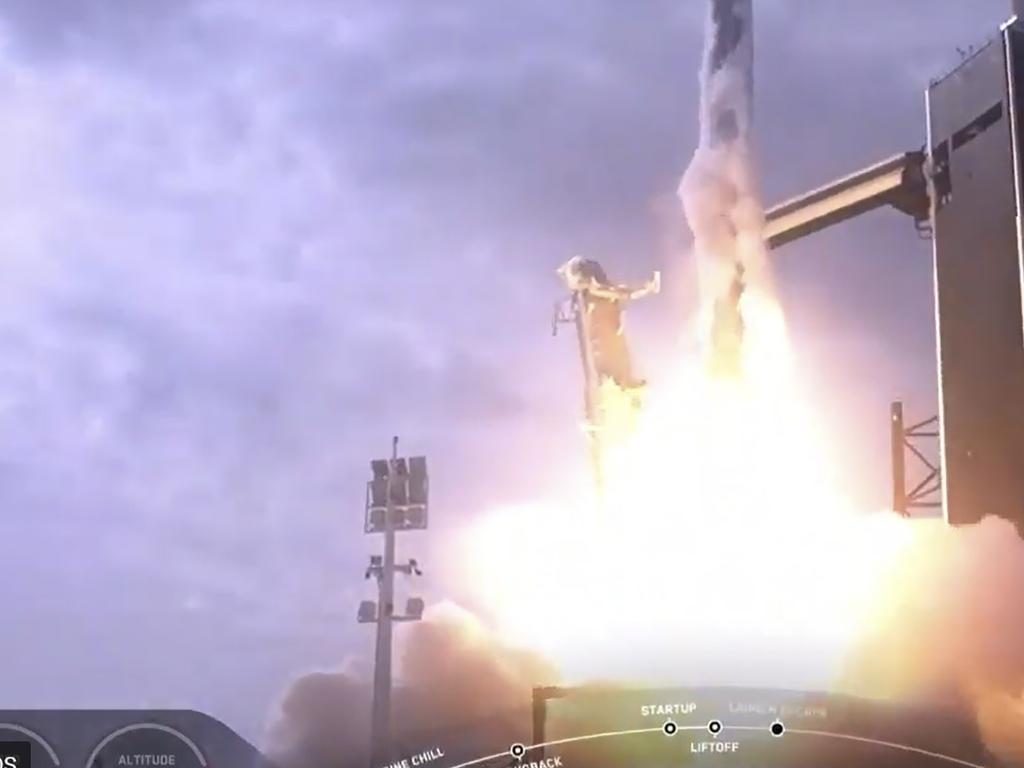
Powerful thrusters on the capsule propelled it up and out of harm’s way, as the rocket engines deliberately shut down and the booster tumbled out of control and exploded in a giant fireball. The capsule reached an altitude of about 44 kilometres before parachuting into the ocean just offshore to bring the nine-minute test flight to a close and pave the way for two NASA astronauts to climb aboard next time.
Everything appeared to go well despite the choppy seas and overcast skies. Within minutes, a recovery ship was alongside the capsule and preparing to pull it from the water.
“I’m super fired up,” Elon Musk, the company’s founder and chief executive, said at a news conference.
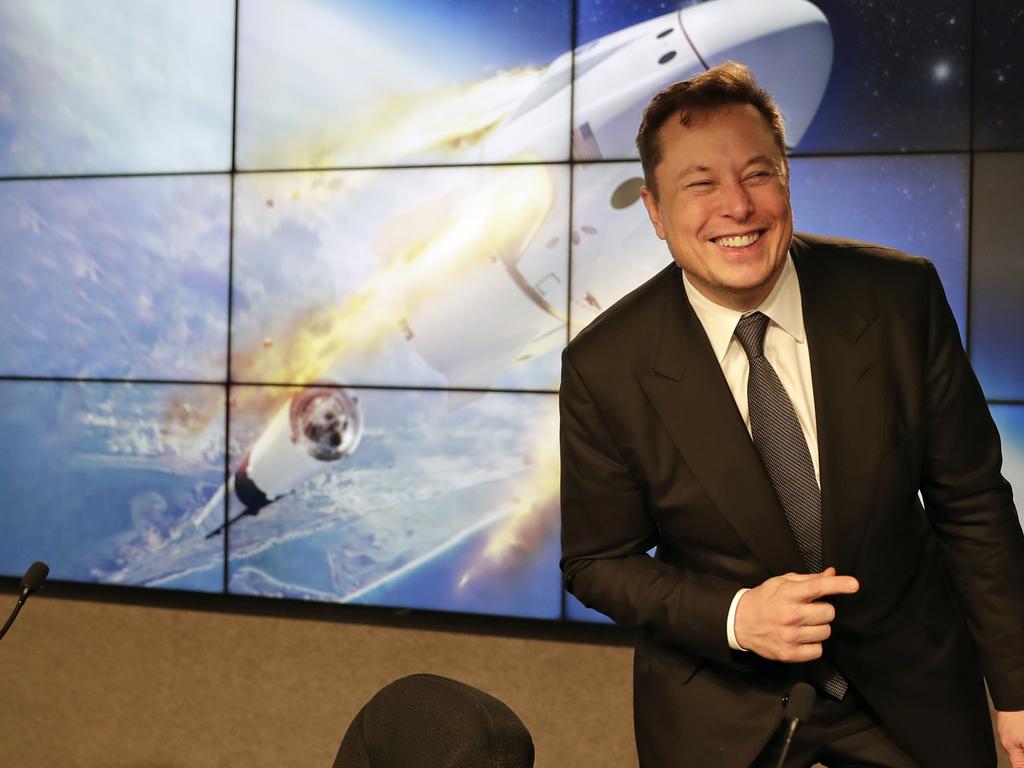
“It’s just going to be wonderful to get astronauts back into orbit from American soil after almost a decade of not being able to do so. That’s just super exciting.”
NASA astronauts have not launched from the US since 2011 when the space shuttle program ended.
Recycled from three previous launches, the SpaceX rocket was destroyed as it burst apart in flight and slammed in pieces into the sea.
SpaceX normally tries to recover its boosters to drive down launch costs, landing them upright on a floating platform or back at the launch site.
NASA’s commercial crew program manager, Kathy Lueders, said the launch abort test was “our last open milestone” before allowing SpaceX to launch Doug Hurley and Robert Behnken to the International Space Station.
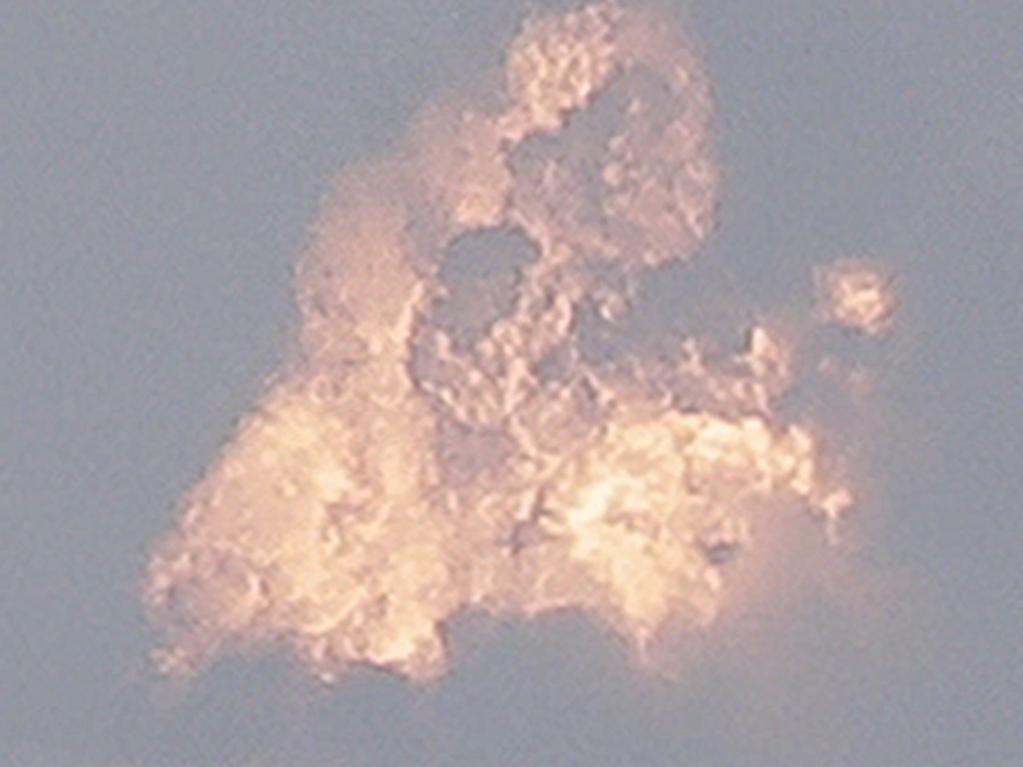
NASA Administrator Jim Bridenstine and Mr Musk agreed that could happen in the second quarter – as early as April.
By all accounts, the test was successful, noted Mr Bridenstine.
Delayed a day by bad weather, the launch from Kennedy Space Center brought together hundreds of SpaceX, NASA and Air Force employees on land, at sea and in the air.
Tourists and locals alike packed the adjoining visitor complex and nearby beaches to see the dramatic fiery spectacle of an out-of-control rocket.
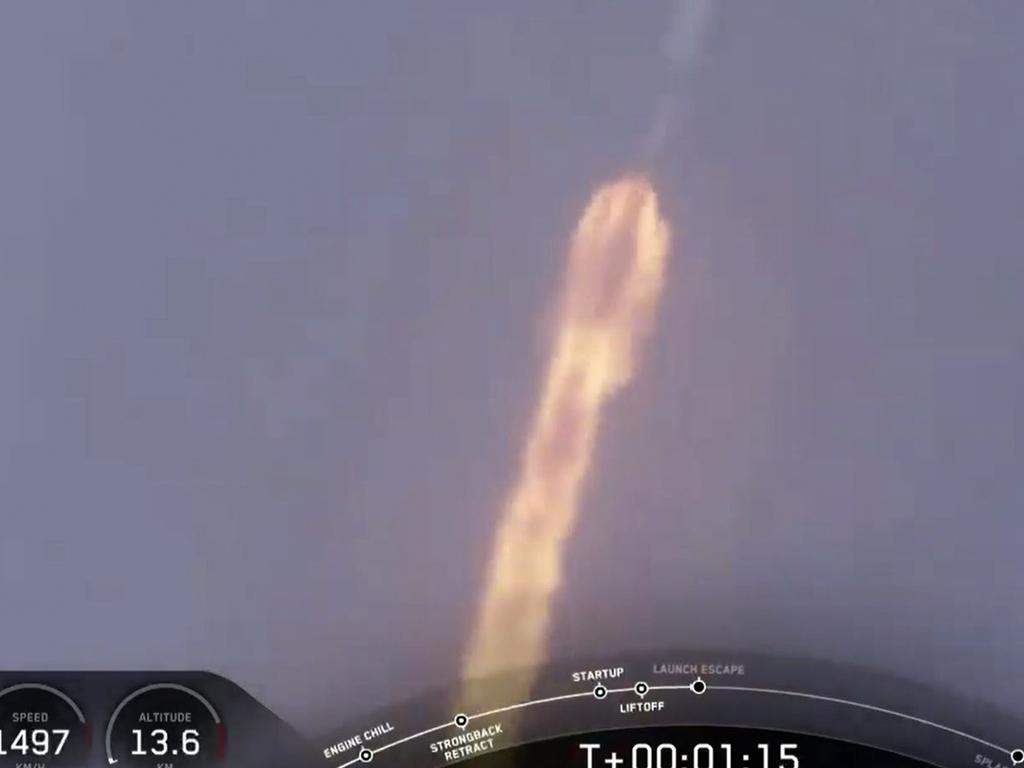
Preferring to focus on the moon and Mars, NASA hired SpaceX and Boeing for billions of dollars to transport astronauts to and from the space station.
SpaceX successfully flew a Crew Dragon to the space station last March without anyone on board, but the capsule exploded a month later during ground testing. The emergency escape thrusters – the kind used in Sunday’s test – had to be retooled. In all, SpaceX has tested these powerful Super Draco thrusters some 700 times.



